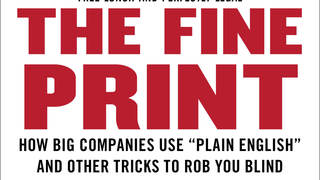When You Hear Claims That Policies Are Working, Read The Fine Print
When I point out that raw changes in state proficiency rates or NAEP scores are not valid evidence that a policy or set of policies is “working,” I often get the following response: “Oh Matt, we can’t have a randomized trial or peer-reviewed article for everything. We have to make decisions and conclusions based on imperfect information sometimes.”
This statement is obviously true. In this case, however, it’s also a straw man. There’s a huge middle ground between the highest-quality research and the kind of speculation that often drives our education debate. I’m not saying we always need experiments or highly complex analyses to guide policy decisions (though, in general, these are always preferred and sometimes required). The point, rather, is that we shouldn’t draw conclusions based on evidence that doesn’t support those conclusions.
This, unfortunately, happens all the time. In fact, many of the more prominent advocates in education today
This statement is obviously true. In this case, however, it’s also a straw man. There’s a huge middle ground between the highest-quality research and the kind of speculation that often drives our education debate. I’m not saying we always need experiments or highly complex analyses to guide policy decisions (though, in general, these are always preferred and sometimes required). The point, rather, is that we shouldn’t draw conclusions based on evidence that doesn’t support those conclusions.
This, unfortunately, happens all the time. In fact, many of the more prominent advocates in education today

